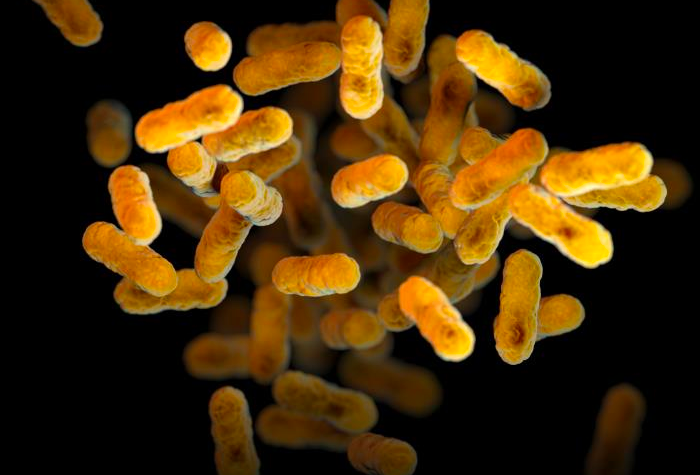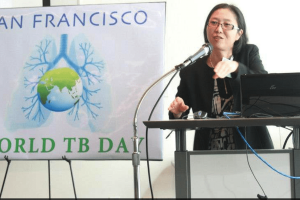Third case of whooping cough diagnosed at school

More stories from Lucy Fried
BACTERIA: Bordetella Pertussis bacteria are responsible for the disease known as whooping cough. It is easily cured with antibiotics, which can be given even before a diagnosis is confirmed.
A third Shalhevet student has been diagnosed with pertussis, extending the time recommended for students to avoid babysitting until Dec. 9, and increasing the urgency of anyone with cold or cough symptoms to see a doctor and take antibiotics in case pertussis is the cause.
Following two cases of pertussis — also known as whooping cough — among the Shalhevet student body, the Los Angeles County Health Department recommended that students avoid contact with babies until Nov. 30, 21 days since the last case was diagnosed. That’s because pertussis is especially dangerous, and possibly fatal, to babies under 1. The second case was diagnosed Nov. 9.
The newly diagnosed student was diagnosed with pertussis on Nov. 21, a week after she began showing symptoms. Knowing about the previous pertussis case, she went to the doctor as soon as she began coughing as a precautionary measure.
“It was a cough that started out of nowhere,” said the student, who did not want to share her name or other identifying information. Knowing she’d been exposed to pertussis at school, she said, “I knew that if I was coughing I should get checked out just in case.”
The student’s doctor prescribed antibiotics right away, while waiting for test results to show whether she had the illness or not. It came back positive five days later, by which time thanks to the antibiotics, she was already well.
Dr. Julie Higashi, infectious disease specialist with the Los Angeles County Health Department, said that was exactly the right thing to do.
The way to stop the illness from spreading further at school, she said, is for students to carefully monitor symptoms and seek treatment if necessary, just as the most recently diagnosed student did.
“I want to commend the person that said, ‘I might be sick, I might have pertussis, let me get tested and treated,” Dr. Higashi said. “You’re not going to eliminate this unless we have people who seek treatment so they don’t spread it to other people.”
Shalhevet’s first two cases of whooping cough were announced to the community by Chief Operating Officer Ms. Sarah Emerson in emails sent to parents Oct. 29, Nov. 5, and Nov. 8, with an attached letter from the Health Department urging them to take students to the doctor if they showed regular cold symptoms.
“Pertussis is a contagious disease that can spread when a person coughs or sneezes,” the letter read. “It usually starts like a cold and gets worse.”
The letter stated what Shalhevet students should do, knowing there’s pertussis at school.
“Children who are coughing may not attend school until their doctor sees them,” said the letter, signed by Dr. Sheree Poitier, Chief Physician 1 of the Los Angeles County Department of Public Health. “Let your doctor know that your child may have been exposed to pertussis.”
Because seven faculty members have newborn babies under a year old, a demographic to which pertussis is a significantly higher threat, Dr. Higashi said that all students should refrain from babysitting until the 21-day period has passed.
“We happen to have a situation where we have a lot of babies as part of the community,” she said. “What the school is asking the community to do is if you’re feeling like you’ve got the sniffles, be aware that there are ongoing pertussis cases and therefore it’s more important to go to the doctor to get tested and treated.”
The student who became the third case said that she did not have to miss any school during her five-day antibiotic treatment because it overlapped with the Thanksgiving break from Nov. 22 to Nov. 26.
But she missed two days of school because of the cough before she was treated. It also affected her Thanksgiving dinner.
“I took Monday and Tuesday off because the cough was so bad,” she said. “And then we had to cancel my Thanksgiving dinner, because I was hosting it and no one wanted to come into a house with people who had whooping cough.”

Lucy Fried was co-editor-in-chief during the 2018-19 school year and went on to study at the Hartman Institute in Jerusalem. She is now a junior at UC Berkeley.


